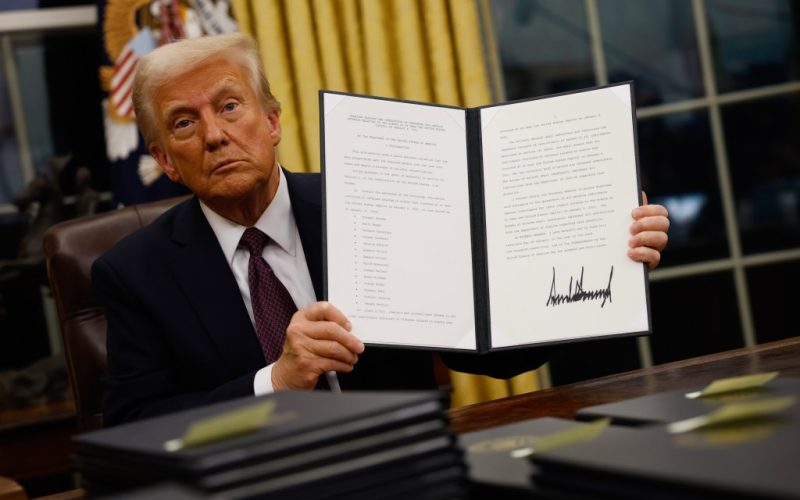Between a series of executive orders and agency policy shifts, President Trump is doing more to damage our national immigration enforcement (which does need reform) than improve it. Most worrisome, he’s axed enforcement prioritization and directed the division of ICE that normally investigates things like trafficking and child abuse material to focus on immigration, actions that criminals will no doubt rejoice.
The administration has tried to end birthright citizenship — an absolutely unconstitutional move — and jettisoned policies that prevented ICE from conducting operations in so-called sensitive locations like schools, hospitals and churches.
The Justice Department is now all but threatening states and localities to comply with this sea change, to their own detriment and the country’s. Congress has now joined the fray with its passage of the Laken Riley Act, a bill that would not have done anything to protect Riley, a nursing student murdered last year, and instead flies in the face of due process by mandating detention of immigrants arrested, not even convicted, of nonviolent crimes.
As all this unfolds, it’s worth keeping in mind that this is about policy but also to some extent about messaging, putting on a show and creating shock and awe.
Trump and his anti-immigrant entourage led by Stephen Miller, now back in the White House, are intent on making immigrants around the country afraid and convincing local political, civic, religious and other authorities that they had better comply in the face of overwhelming force.
But laws are still laws and an executive order cannot override the law nor the Constitution, and it cannot massively increase surveillance, arrest, detention and removal capacity overnight. The Trump administration wants you to think that it has far greater actual capacity than it really has in an effort to create an aura of inevitability that will engender fear with the hope that immigrant populations will carry out their designs for them.
This is to some level explicitly laid out in the absurdly titled “Protecting the American People Against Invasion” executive order that Trump signed on Monday, one of several to use the farcical moniker of “invasion” to describe falling flows of unorganized humanitarian migrants. That order has a section calling for the government to encourage “aliens unlawfully in the United States to voluntarily depart as soon as possible,” a longtime objective of nativist agitators who’ve understood that the government cannot arrest millions of people.
The trick about that is it works best if people buy into it. Not to say that the federal government doesn’t have wide-ranging power, but it is more limited and subject to more legal constraints than most people might realize. If Trump wants to self-immolate the American economy and shred civil liberties across the board by engaging in heavy-handed enforcement, the other branches of government and the rest of the country do not have to go along.
A big part of what blunted the administration’s excesses during the first term was simple local noncooperation, which goes a long way in a federal system. Already, states and civic and legal organizations are filing suit against unlawful actions like the birthright citizenship ban.
The politics have changed a bit in the intervening years, but the potential damage of giving into an anti-immigrant vision of the United States has not.








